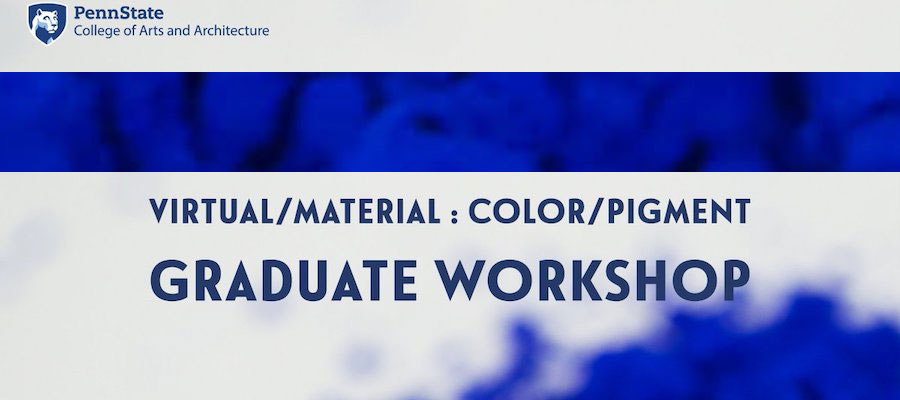Virtual/Material: Color/Pigment, Penn State University, August 9–13, 2021
The Department of Art History at Penn State University is seeking applications from doctoral students in art history and related disciplines for the week-long workshop, Virtual/Material: Color/Pigment.
Funded by the Samuel H. Kress Foundation, this workshop will offer an integrated curriculum of Technical and Digital Art History via the special case history of color. Through a combination of seminars, demonstrations, and hands-on labs led by a distinguished faculty of scientists and historians, participants can expect to leave the workshop better equipped to understand historical colorants and their production as well as the ways in which digital cultures can distort or ameliorate historians’ approach to such colorants.
The current requirement that art historians rely more or less exclusively on virtual platforms and digital resources for their research and teaching during the COVID-19 pandemic has made plainer the need for scholars to understand the relationship between works of art as material objects and as data. The evidentiary status of digital representations of works of art is a question that has become as pressing for students and scholars of art history as it has long been for conservators and conservation scientists, imaging professionals, data scientists, and information specialists. Processes of translation from the material into data and vice-versa are poorly understood by most art historians, potentially jeopardizing the validity of research questions and findings. This predicament is especially conspicuous in the realm of color —a property of artworks that is often misunderstood or marginalized.
Led by Sarah K. Rich, the workshop’s distinguished faculty includes Susan Farnand (Rochester Institute of Technology), Carolyn L. Kane (Ryerson University), Hannelore Roemich (Institute of Fine Arts), Michael Hickner (Penn State), John Russell (Penn State), Pamela H. Smith (Columbia University), and Tracy Stuber (Getty Research Institute).
The workshop will take place August 9 – 13, 2021. Participants' roundtrip travel, shared lodging, shared meals, books, and all lab materials will be covered.
Plans are to conduct the workshop in person; however, should conditions related to the COVID-19 pandemic necessitate the shift to a virtual format, all sessions will be live-streamed and necessary instructional materials will be shipped in advance to participants. The decision about whether the workshop will be held in-person at Penn State or conducted virtually via Zoom or another digital platform will be made at the time applicants are notified of admission.
